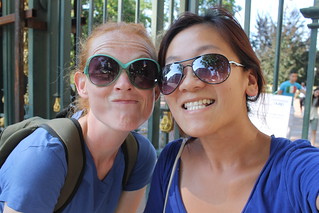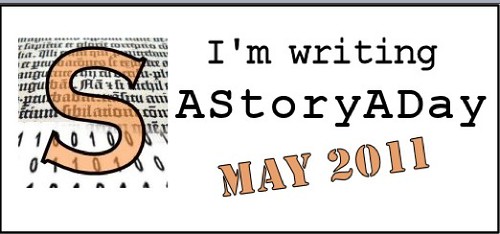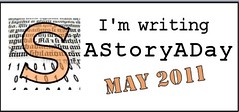Gabriela Pereira is a former StoryADay participant and has spent the past month launching her DIY MFA 2.0, an intensive writing program, all online.
She took some time to tell me about the course and give some great advice for writers about to embark on a big writing jag (know anyone like that?)
She is also hosting a write-in on Sunday May 1. I highly recommend checking out her DIY-MFA site and Facebook page and following her on Twitter.
Tell me about DIY MFA 2.0
 The idea behind DIY MFA is to simulate the experience of a Master of Fine Arts degree in Creative Writing without actually going to school. DIY MFA has 4 main components: Reading, Writing, Workshops and Community. The original DIY MFA (which took place in September 2010) covered these four topics at length.
The idea behind DIY MFA is to simulate the experience of a Master of Fine Arts degree in Creative Writing without actually going to school. DIY MFA has 4 main components: Reading, Writing, Workshops and Community. The original DIY MFA (which took place in September 2010) covered these four topics at length.
DIY MFA 2.0 takes a different approach, focusing mostly on the “writing” part of the equation. The idea in DIY MFA 2.0 is to spark new ideas and create a stash of ideas that writers can go to when they hit the wall or feel a creative drought coming on. There are 4 ways that DIY MFA can help generate new ideas and those are through: character, story, mood and words. Each week in April we focused on one of these areas and explored different writing exercises and techniques with that theme. Ultimately, the goal is to develop methods and tools for generating ideas so that when you need lots of new ideas in a short period of time (like when you’re writing a Story A Day) you have a bunch of concepts already ready and waiting.
How do you make time for writing?
I don’t make time for writing. I steal it. I’m always on the lookout for hidden pockets of time when I can read or write because if I sit around waiting for a huge block of time to land in my lap, I know it will never happen. I live in a city, so for me subways and buses are great places to sneak in some writing. I love my Kindle because I can put a copy of my WIP on it and can edit on the go. I also carry small notebook with me everywhere so that if I’m stuck waiting for an elevator or waiting on a subway platform, I can break out my notebook and jot down a few sentences.
Even with all this time-theft going on, I also try to carve out a few small chunks of time when I do writing “sprints.” In DIY MFA, I’ve asked participants to do at least one sprint per week on Saturdays, but for me these sprints happen whenever I manage to steal a chunk of time long enough that I can call it honest-to-goodness solid writing time. During these precious moments, I’ll practice some stealth writing, where I run to a coffee shop and hide out while I write. Not only am I more efficient if I know I only have a short span of time to write, but the stealth aspect also makes it more exciting (like I’m doing something I shouldn’t… something naughty).
And don’t underestimate the power of the Pomodoro. That adorable little tomato timer app that sits on my desktop has worked wonders for me. If I know I only have 25 minutes to write, I won’t stop to check email or twitter or anything else, I’ll just write. After I’ve finished a couple of rounds of Pomodoro, I’ll treat myself to a short spurt of internet fiddling.
What’s your best advice for someone who’s trying to make writing a priority (again)?
I’m a huge believer in baby steps and I’m not a fan of huge, unmanageable goals because they set writers up to fail. Missing a goal can lead to feelings of “I can’t do this” or “I’m not good enough” which only leads to paralysis, writer’s block and loss of motivation. Of course, lower motivation means the next set of goals becomes even more unmanageable so the cycle just continues. The trick is to break the cycle of negativity and find ways of sparking the motivation when it starts slipping away.
For me, writing isn’t about success vs. failure; it’s about doing. If a writing challenge helps a writer motivate themselves and stay on track, fantastic! But the important thing in my mind is that writers do the work, whether it means meeting a goal within a certain time frame or not. That’s where I think Story-A-Day gets it right: because it’s not just about writing a story every day, it’s about bouncing back on the days when you can’t actually get a story done. It’s about getting ideas down quickly, without judging. It’s about writing it and moving on, leaving the tweaks and edits for some later point.
Ultimately, I think StADa and DIY MFA have similar goals: to help writers rekindle their love of writing and help them develop a sustainable, enriching writing life.
Thanks, Gabriela!








